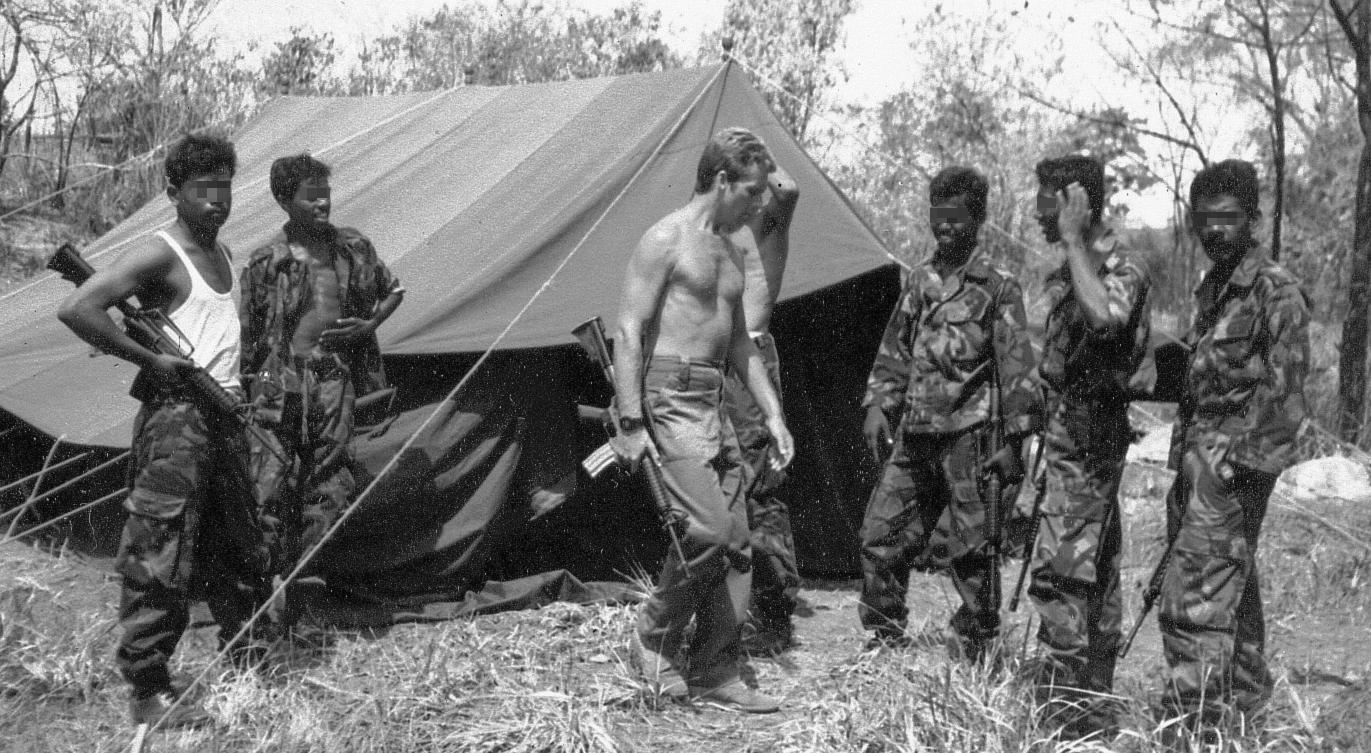
Photograph: Yardstick Films.
Responding to questions posed by UK Shadow Justice Minister, Lyn Brown, over the government’s assessment of Keenie Meenie Services war crimes in Sri Lanka and continued police training, Britain’s government has asserted that they are taking allegations of war crimes “very seriously” whilst also defending training provided by the Scottish police.
On 20 November Lyn Brown, spoke in parliament and asked the Secretary of State for Foreign, Commonwealth and Development Affairs if he would “make an assessment of the role of Keenie Meenie Services in alleged historical war crimes in Sri Lanka”.
To which Nigel Adams, Minister for Asia at the Foreign and Commonwealth Office and Department for International Development, responded stressing the UK’s concern and commitment to “truth, reconciliation, accountability and justice for all”. He stated:
“The UK takes very seriously the allegations raised in relation to the employment of Keenie Meenie Services Ltd by the Government of Sri Lanka during the conflict in Sri Lanka.
The Metropolitan Police War Crimes Team have launched an investigation into war crimes alleged to have been committed by British mercenaries in Sri Lanka during the 1980s, in accordance with the Crown Prosecution Service's published guidelines for referrals of war crimes and crimes against humanity. The Foreign, Commonwealth and Development Office are assisting the police in relation to this matter, including by sharing relevant documents. We are not able to provide further comment on the details of the investigation, as it is ongoing.
The UK Government will continue to press for truth, reconciliation, accountability, and justice for all victims of the Sri Lankan civil war, including those allegedly affected by Keenie Meenie Services' activities”.
Read the full statements here.
Training Sri Lankan police
During that same day in parliament, the UK Shadow Justice Minister questioned if Police Scotland were continuing to provide training to Sri Lankan police forces.
Adams responded stating:
“Police Scotland and the legacy Scottish Police College have a longstanding involvement in the delivery of training, mentoring and capacity-building for the Sri Lanka Police Service (SLPS). This includes a range of programmes between 2010 and 2018 focused on a variety of training and reform requirements including community policing, development of the SLPS National Police Academy and work on issues related to gender and vulnerable groups. The programme's approach has been regularly revisited and adapted depending on context and requirements".
The current programme, which began in 2019 and is due to last until 2022, focuses on activities aimed at developing community policing, the role of women in the SLPS and improving the response to sexual and gender-based violence. Due to Covid-19, many of these activities are paused with the exception of work at the local level to support victims of sexual and gender-based violence and domestic violence”.
The continued police training comes despite undercover footage provided by Yardstick films which revealed deep ties between Scotland’s police force and Sri Lanka’s Special Task Force – a paramilitary unit that has been accused of directly carrying out war crimes against Tamils and engaging in violent anti-Muslim riots.
In May of this year, Gunaratne announced that the STF will have a greater responsibility in countering religious extremism and drug mafia.
Read full statements here.
